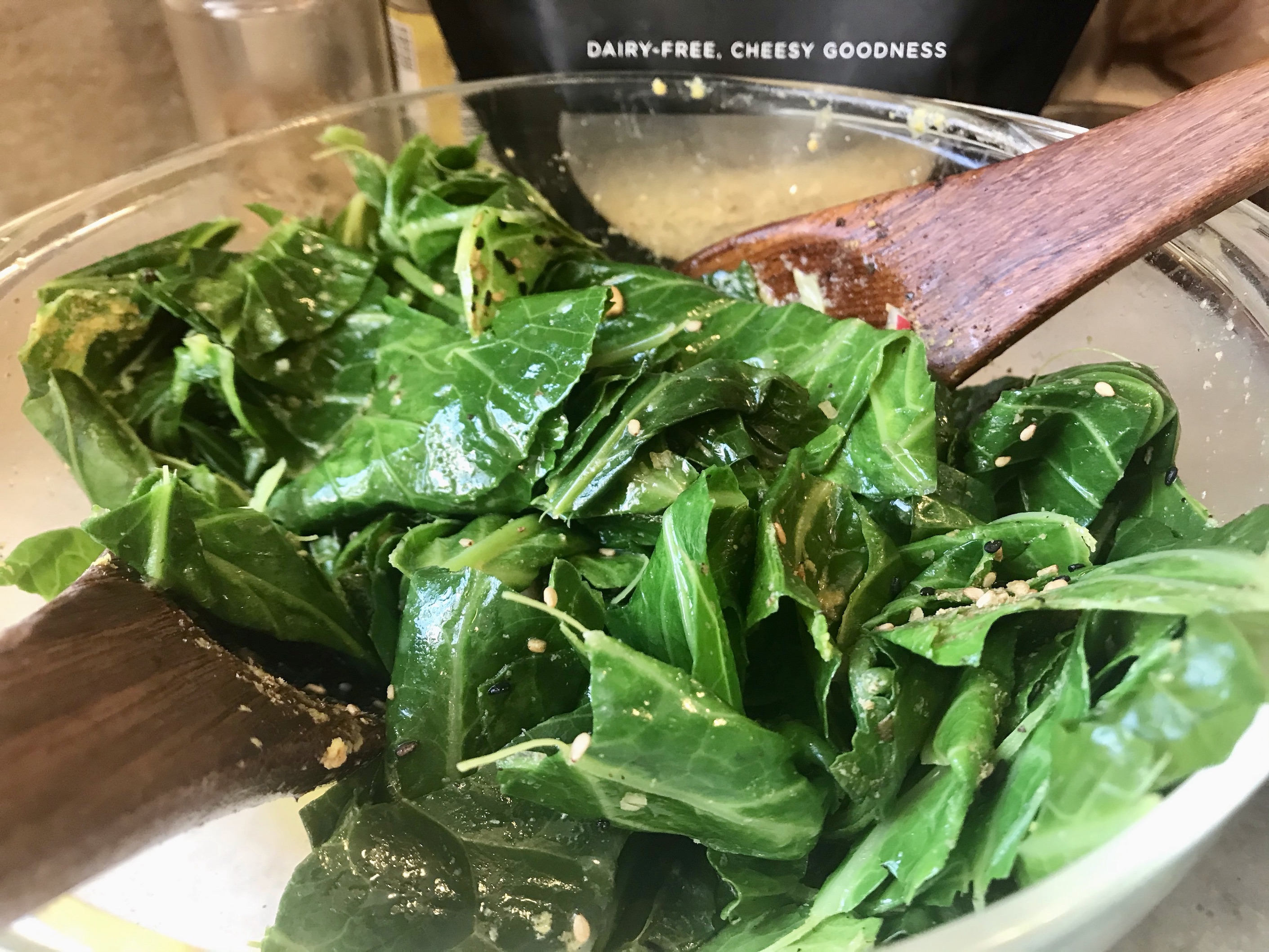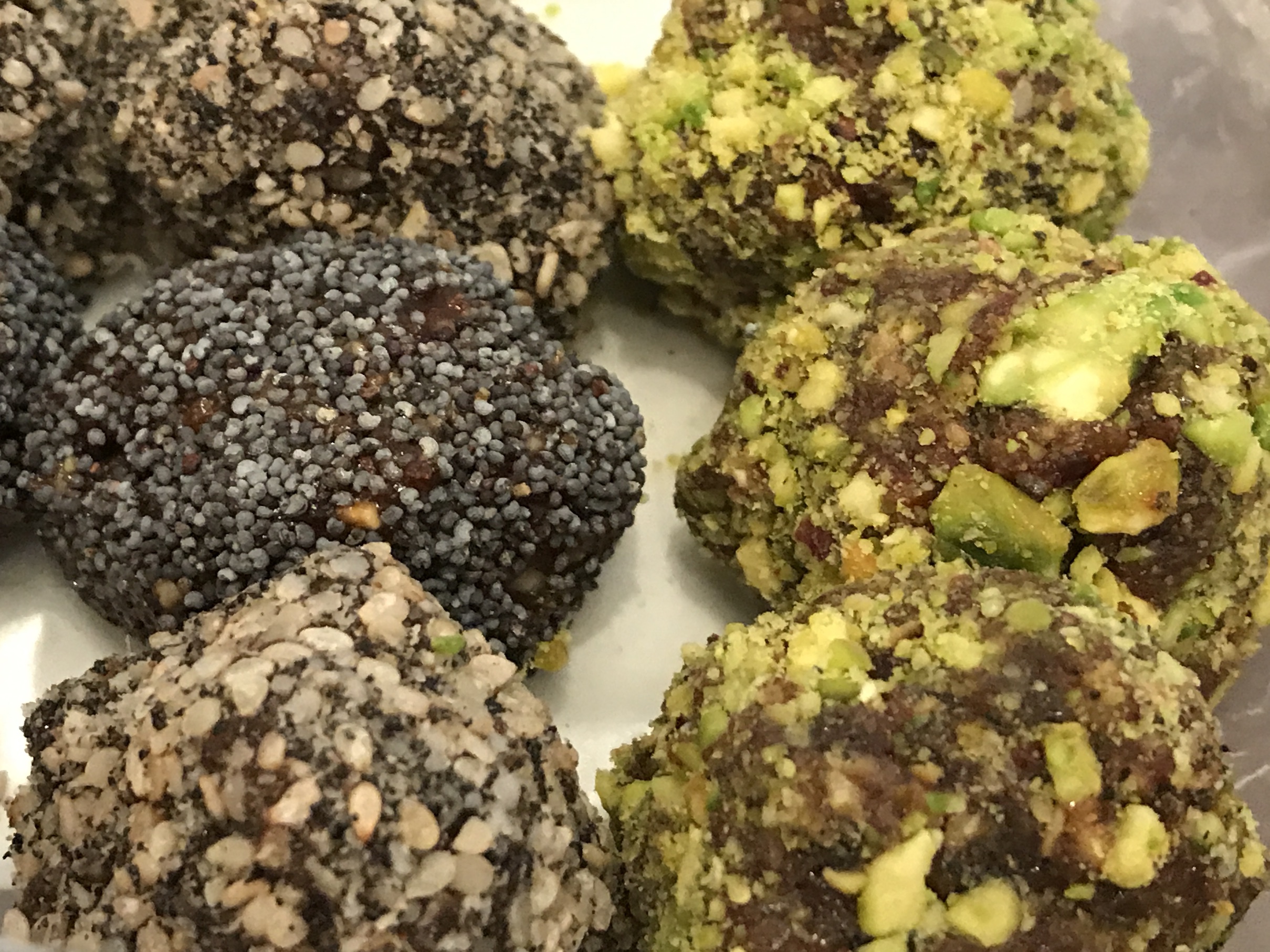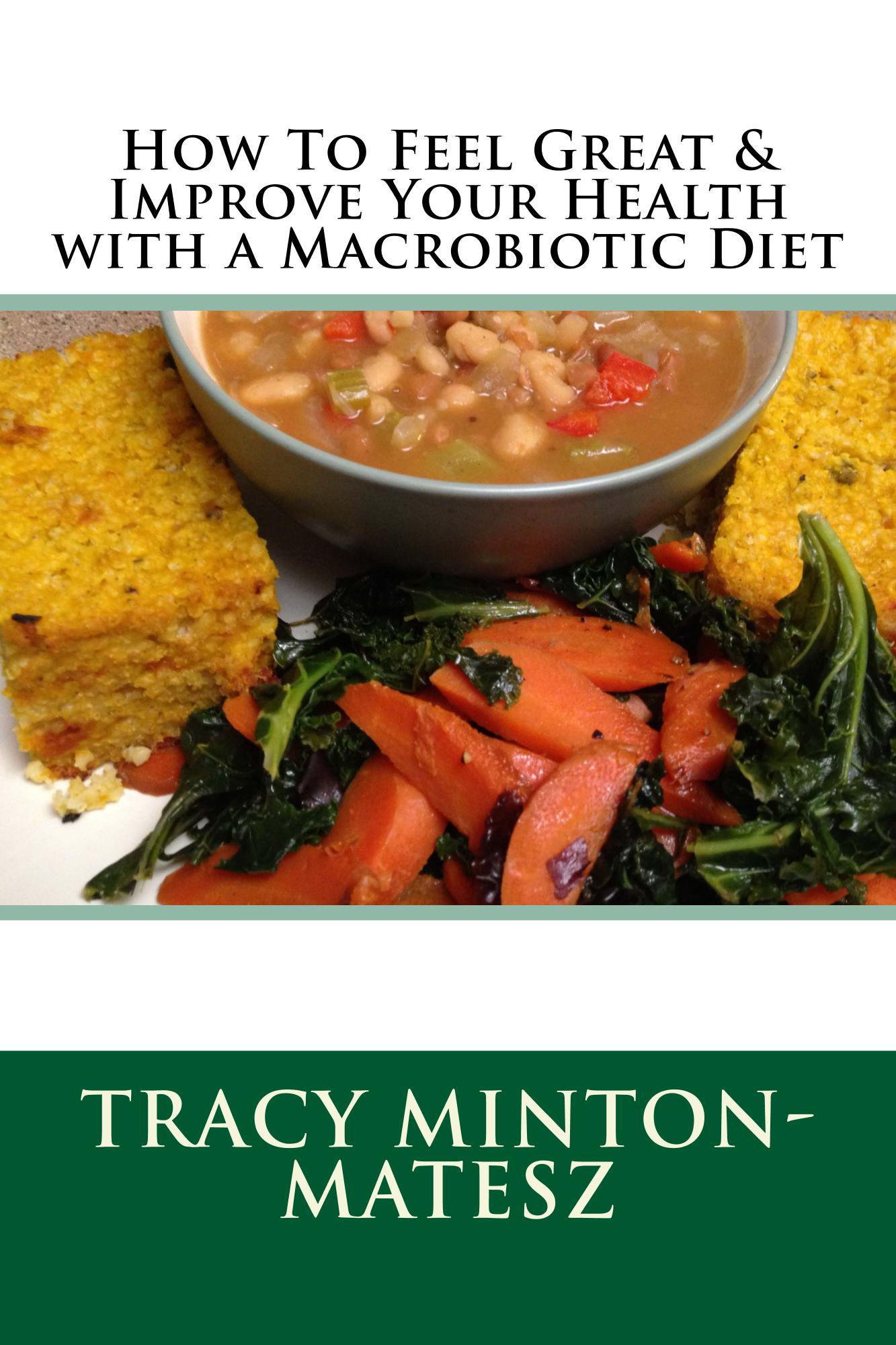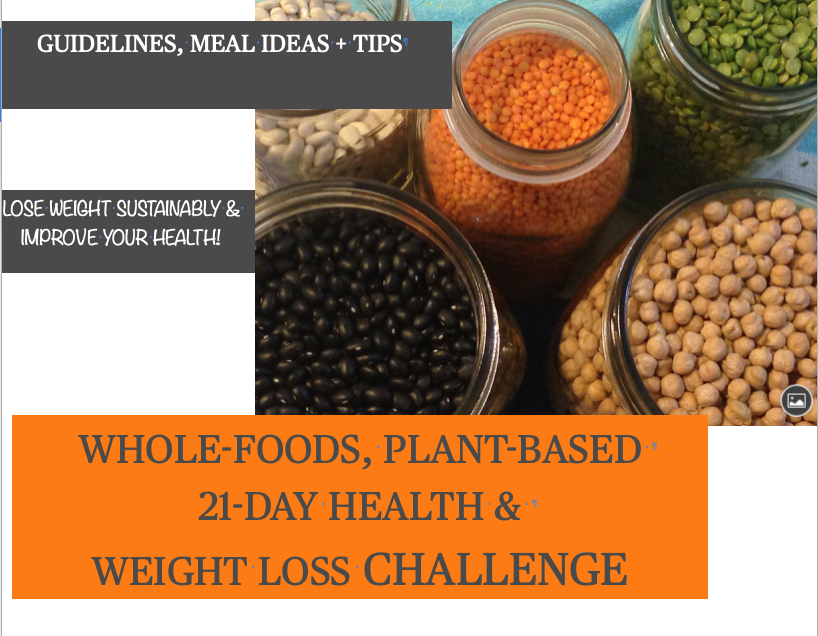A Pure Vegetarian Plant-Based Diet is Simple, Healthy & Budget Friendly
Evidence suggests a pure vegetarian, or vegan plant-based diet has been shown in countless studies to offer many health protective benefits. According to the Journal of the American Heart Association, "Diets higher in plant foods and lower in animal foods were associated with a lower risk of cardiovascular morbidity and mortality in a general population."
In this article, I share just a few studies indicating ta few of the many health benefits of a vegetarian plant-based diet. While it's helpful to track research to weigh the preponderance of evidence when determining the best dietary approach, Don and I coach people according to Chinese and Ayurvedic medicine principles of balance.
Nonetheless, I've included a handful of studies supporting the benefits of a vegetarian plant-based, or vegan diet. For a more in-depth look at the scientific research, and physiological characteristics which favor a plant-based dietary approach, I highly recommend visiting Don's website, and signing up to receive a FREE PDF copy of his in-depth book, Powered by Plants while it is still available.
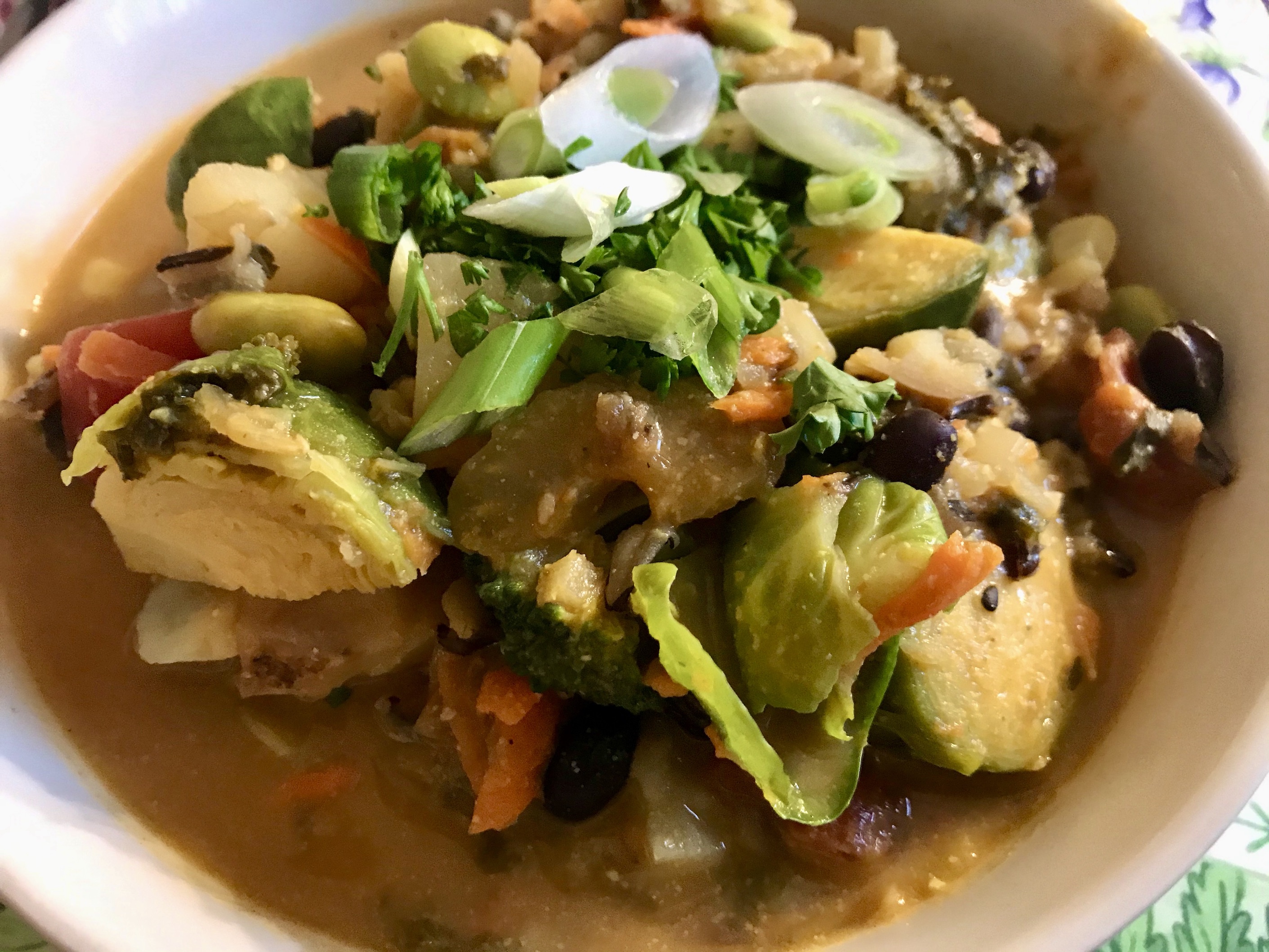
According to this Abstract published in 2004, "There is ample reason to believe that diets rich in phytochemicals provide protection from vascular diseases and many cancers; direct antioxidant activity as well as modulation of enzyme expression or hormone activity contribute to this effect. Phytochemicals derived from diverse foods presumably can interact additively and (possibly) synergistically; thus, the total dietary load of phytochemicals may have important implications for health."
A "Phytonutrient Index" (PI) score was proposed as a means of quantifying the 'load' or percentage of phyto-nutrients (found in plants) Americans consume from whole, unprocessed grains, beans and legumes, fruits and vegetables and nuts and seeds. The PI also included beer, wine, and cider. Foods excluded from this index included animal foods, white potatoes and potato products, refined grains, sugars, and oils (with the exception of partial credit being given to extra virgin olive oil), and hard liquor.
According to this 2011 video from Dr. Michael Greger, Americans on average consume less than 15% of total calories from these whole plant foods sources.
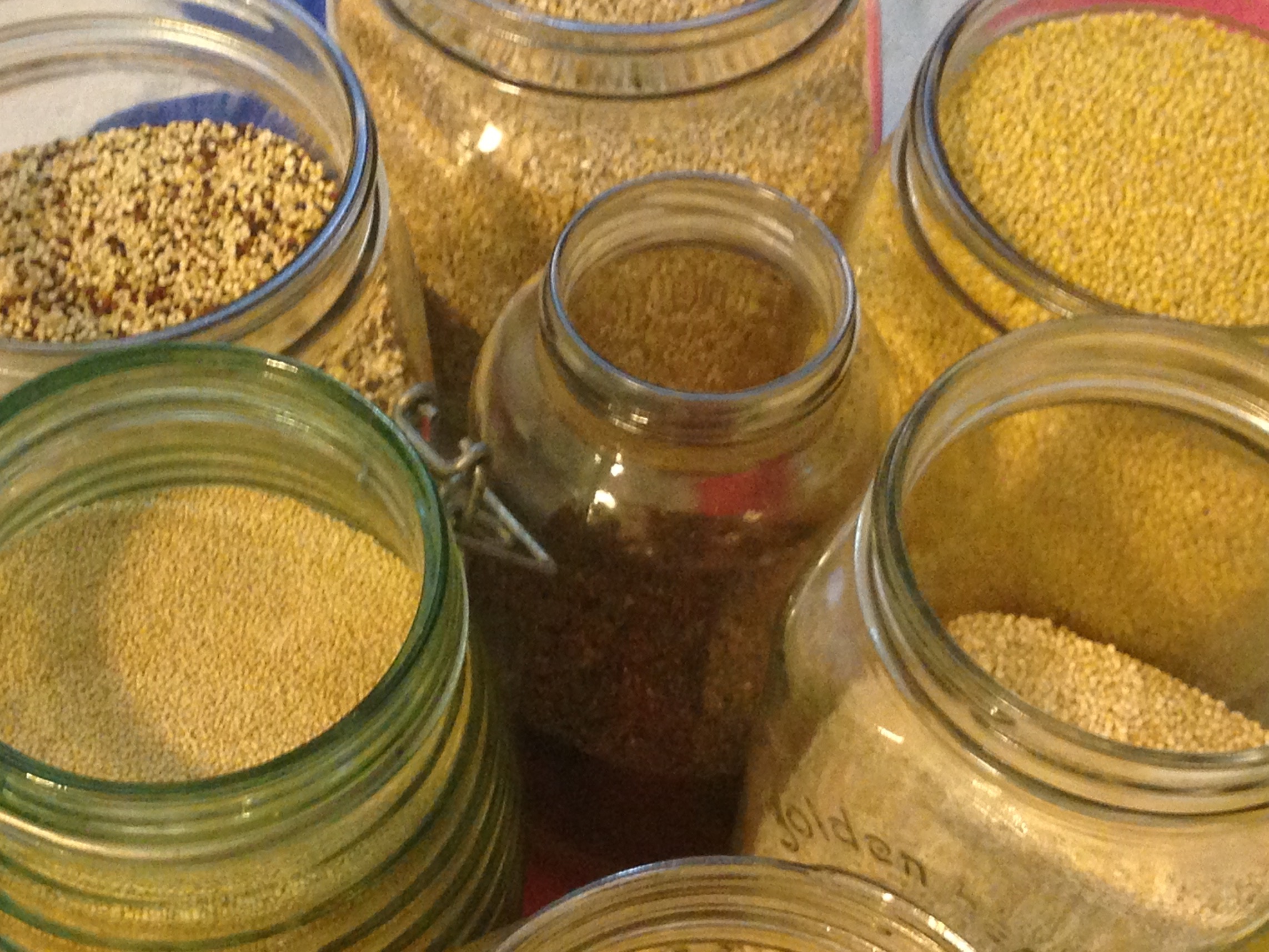 |
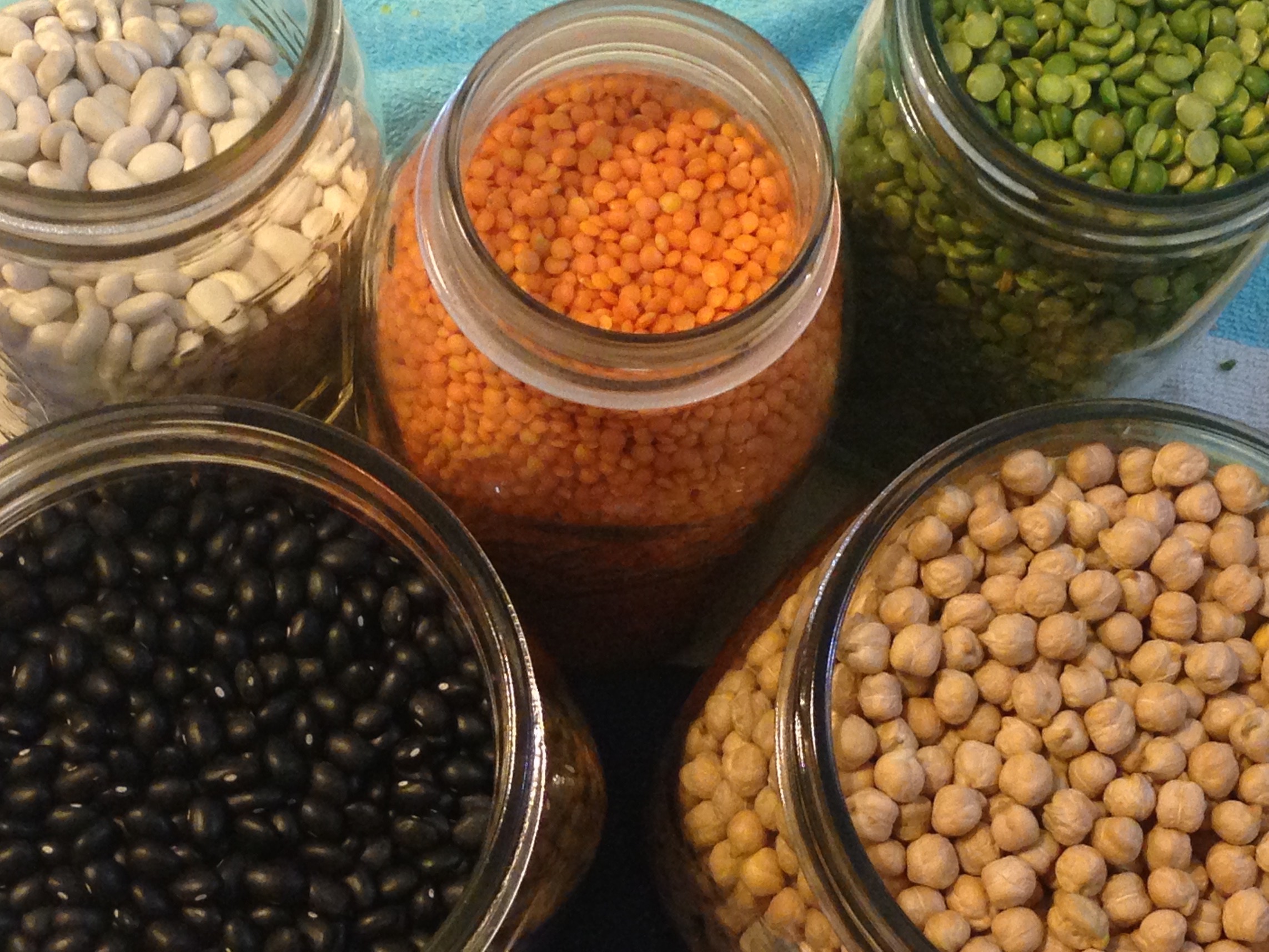 |
In this systematic review published in Nature.com looking at the effects of plant-based diets on the body and brain, the authors note:
"More specifically, 19 out of 32 studies dealing with T2DM and/or obese subjects and seven out of 32 dealing with healthy subjects observed a more pronounced weight loss and metabolic improvements, such as lowering of glycated hemoglobin (HbA1c)—a long-term marker for glucose levels—decreased serum levels of low-density (LDL) and high-density lipoproteins (HDL) and total cholesterol (TC), after a plant-based diet compared to an omnivore diet. This is largely in line with recent meta-analyses indicating beneficial metabolic changes after a plant-based diet."
In this Exam Room video on YouTube, Dr. Neal Barnard of Physicians Committee for Responsible Medicine (PCRM) and host, "The Weight Loss Champion" Chuck Carrol, explore two recent studies analyzing diets of health care workers in six countries, and in one study found that consuming less meat and dairy, and more fruits and vegetables reduced risk of severe infection of 'Co-Vid' by 73%, while a low carb, ketogenic diet appeared to significantly increase likelihood of becoming severely ill.
In a second study of nearly 600,000 people found that a plant-based diet offered prevention against becoming infected at all.
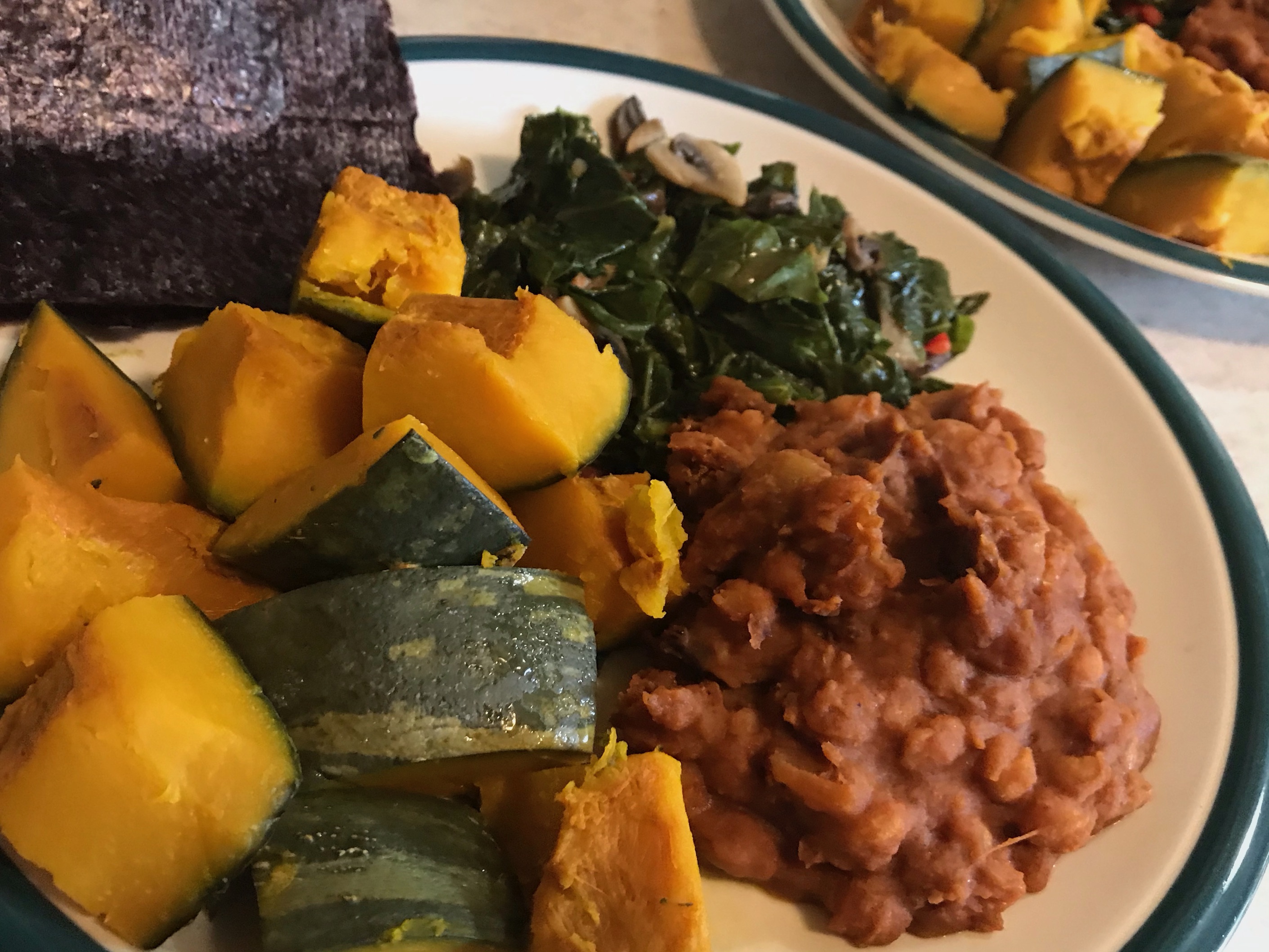
Dr. Greger outlines numerous studies about various plant properties with a wide variety of health protective and health enhancing benefits in his book, How Not To Die, available FREE on Kindle.
Whole grains, beans & legumes, fruits, vegetables and nuts & seeds all contain a variety of phytonutrients and other components ~ many of which have yet to be discovered ~ not found in animal foods. These phytonutrients, along with fiber, antioxidants and minerals found exclusively or more abundantly in plant foods help us counter free radicals, create a healthy gut microbiome, strengthen our immune system, and minimize our risk for many chronic diseases.
In fact, as Dr. Greger of NutritionFacts.org points out in this video, beans and legumes may be the single most important dietary predictor of a long lifespan.
An Enlivening Vegetarian Plant-Based Diet
As I wrote in my blog post, Returning Home to My Heart, both Don and I were drawn to vegetarianism early on in our lives, when that was the catch all term for diets that excluded animal foods, and instead centered around natural, whole plant foods ~ a pure vegetarian plant-based diet. The terms vegan or whole foods, plant-based were not in circulation yet.
In the above blog post, I also shared a passage from Dr. Rudolph Ballentine's book, Transition to Vegetarianism which I'll share again here, where he defines the root origins of the term vegetarian:
"The origin of the term "vegetarian" can be traced to the Latin vegetare, which means "to enliven." This is related to vegere and vigere, which mean "to arouse" and "to flourish." From the latter also come "vigorous" and "vigil," which connotes wakeful or alert. The most ancient word is wag, to be lively or strong. The basis of the term "vegetarian," then, is a sense of liveliness, vigor, and alertness, rather than merely an indication of a diet of vegetables. The issue is not whether the diet is or isn't made up exclusively of foods of plant origins (vegetable foods) but whether it is enlivening and health-giving." (Emphasis added.)
Hence, a vegetarian plant-based diet is enlivening and health promoting, and, contrary to popular memes, will promote a sense of mental alertness, and physical vigor so you can flourish ~ as per your divine blueprint.
While genes play a role in our health outcomes, we are not victim to our DNA. We are meant to live vigorous, healthy, productive lives, providing we eat well, live simply and follow our hearts!
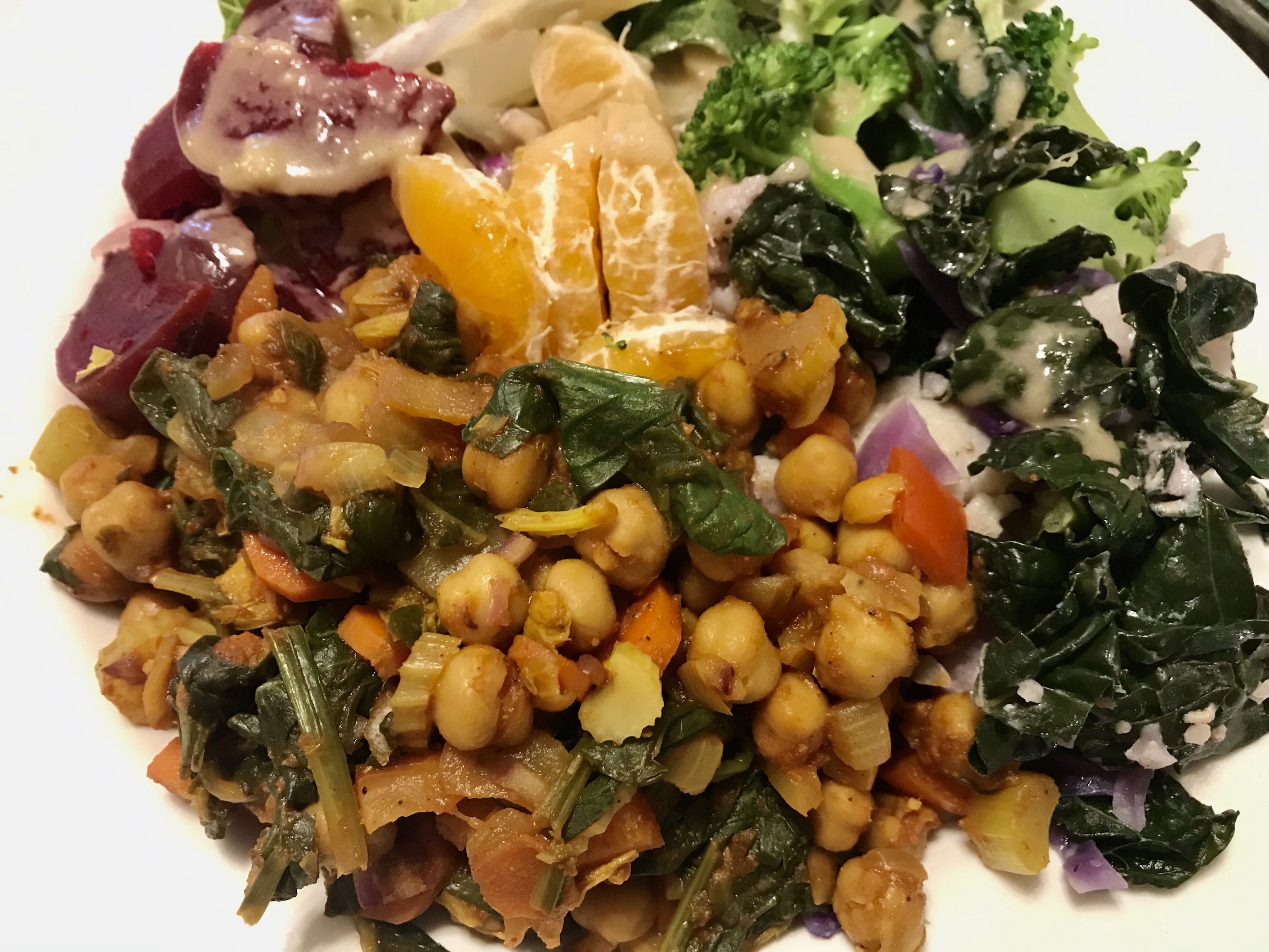
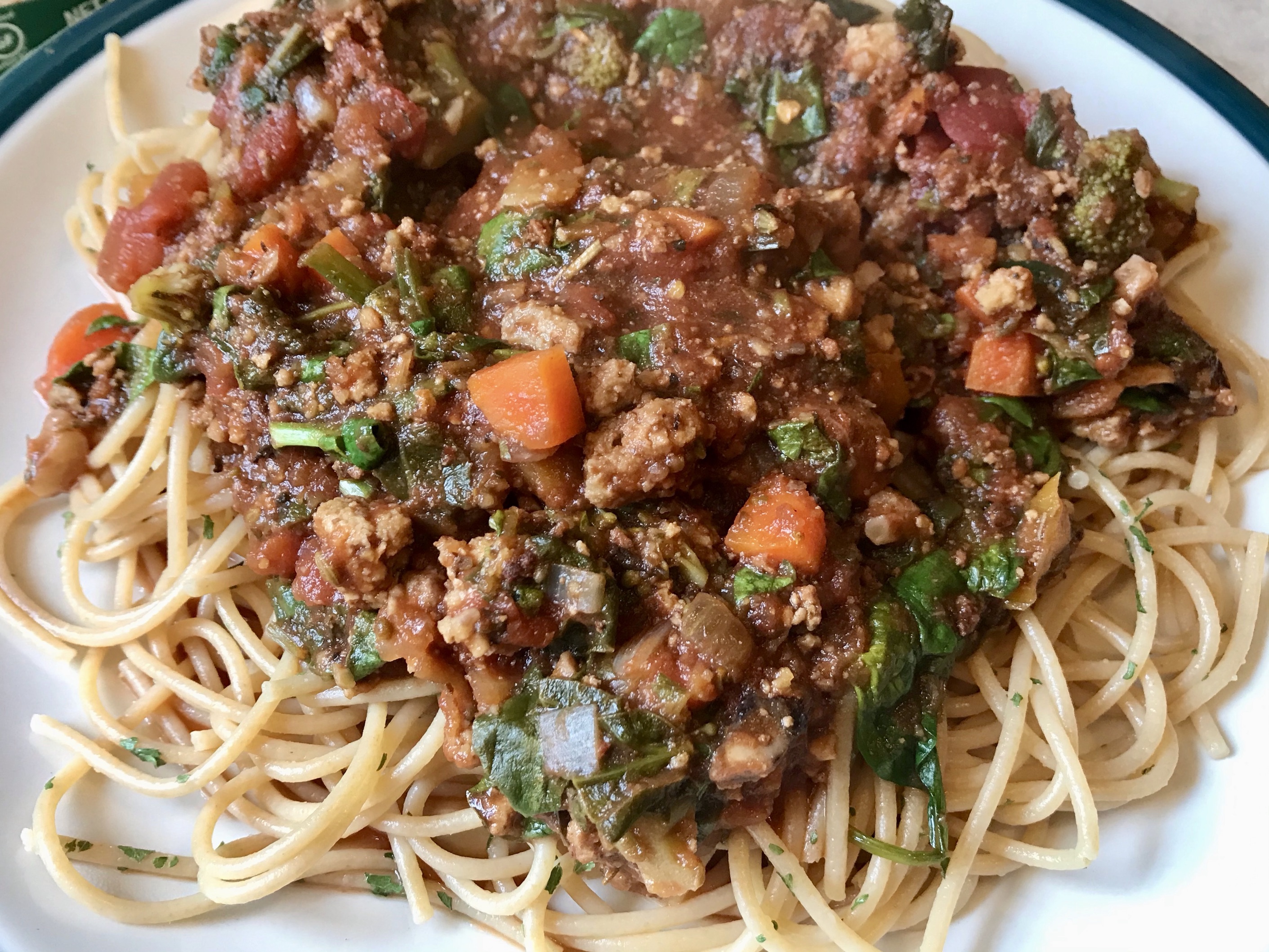
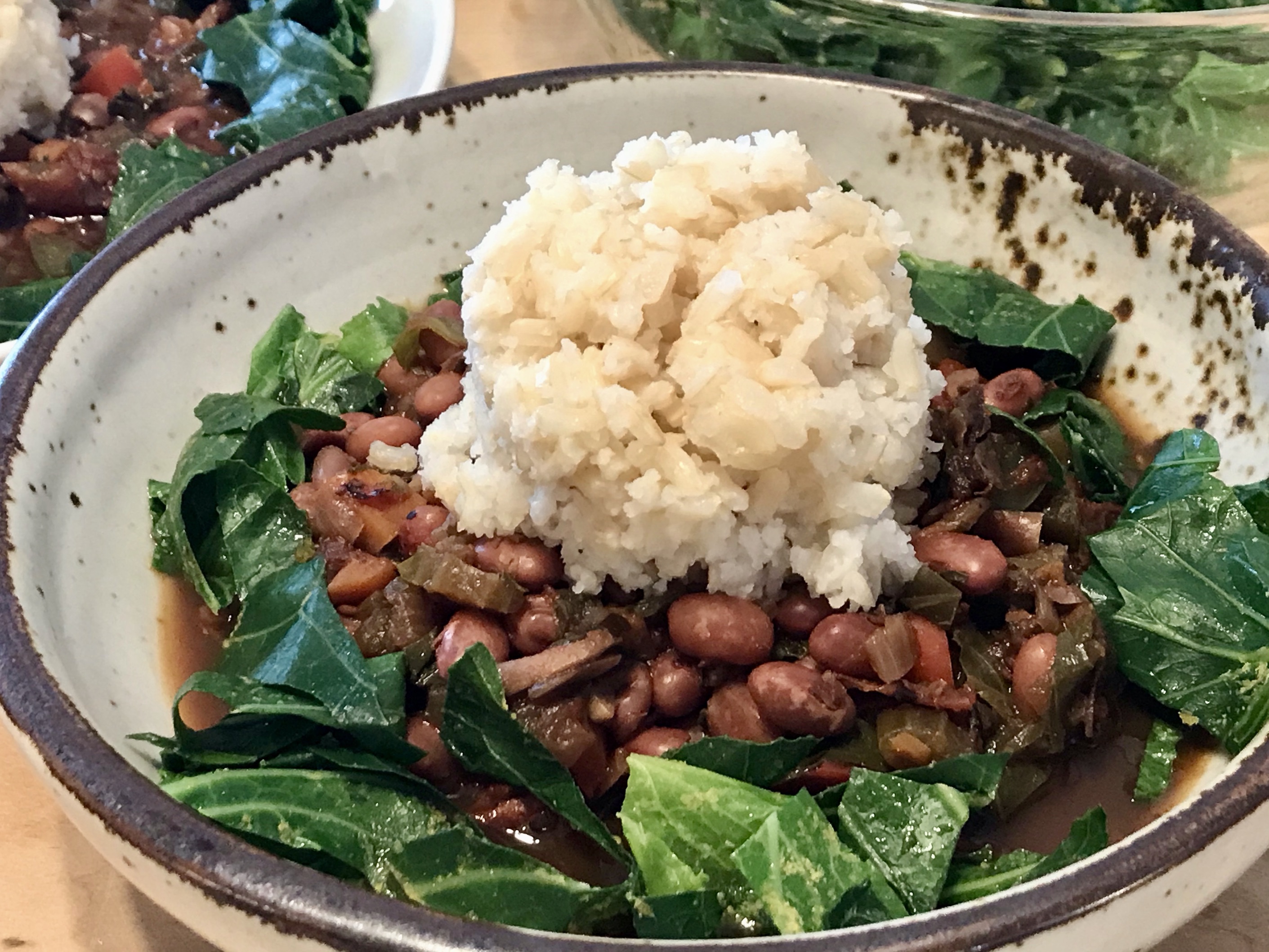
Simple, Affordable & Adaptable = Sustainable!
A vegetarian plant-based diet can be very budget-friendly when sticking to staple foods, such as whole grains, beans and legumes, and products made from grains and/or beans such as pasta noodles and whole, sprouted grain, or sourdough breads; potatoes, sweet potatoes, winter squash, fruits, vegetables and a few basic condiments and spices.
Even with recent spikes in food costs, most of these foods are still quite affordable, easy to store, and easy to prepare ~ once you get in the flow of cooking differently than what you may be accustomed to.
Instead of a slab of meat taking up the bulk of your plate, you will be creating delicious hearty bowls or plates filled with what you may have previously considered a side dish ~ grains, winter squash, sweet or regular potatoes, vegetables and a salad ~ along with beans, chickpeas, lentils, tofu or tempeh and other plant proteins prepared in a variety of ways including stir fries, soups, chili, wraps, pasta dishes, tacos, vegetarian plant-based burgers, pizzas, sushi, and much more.
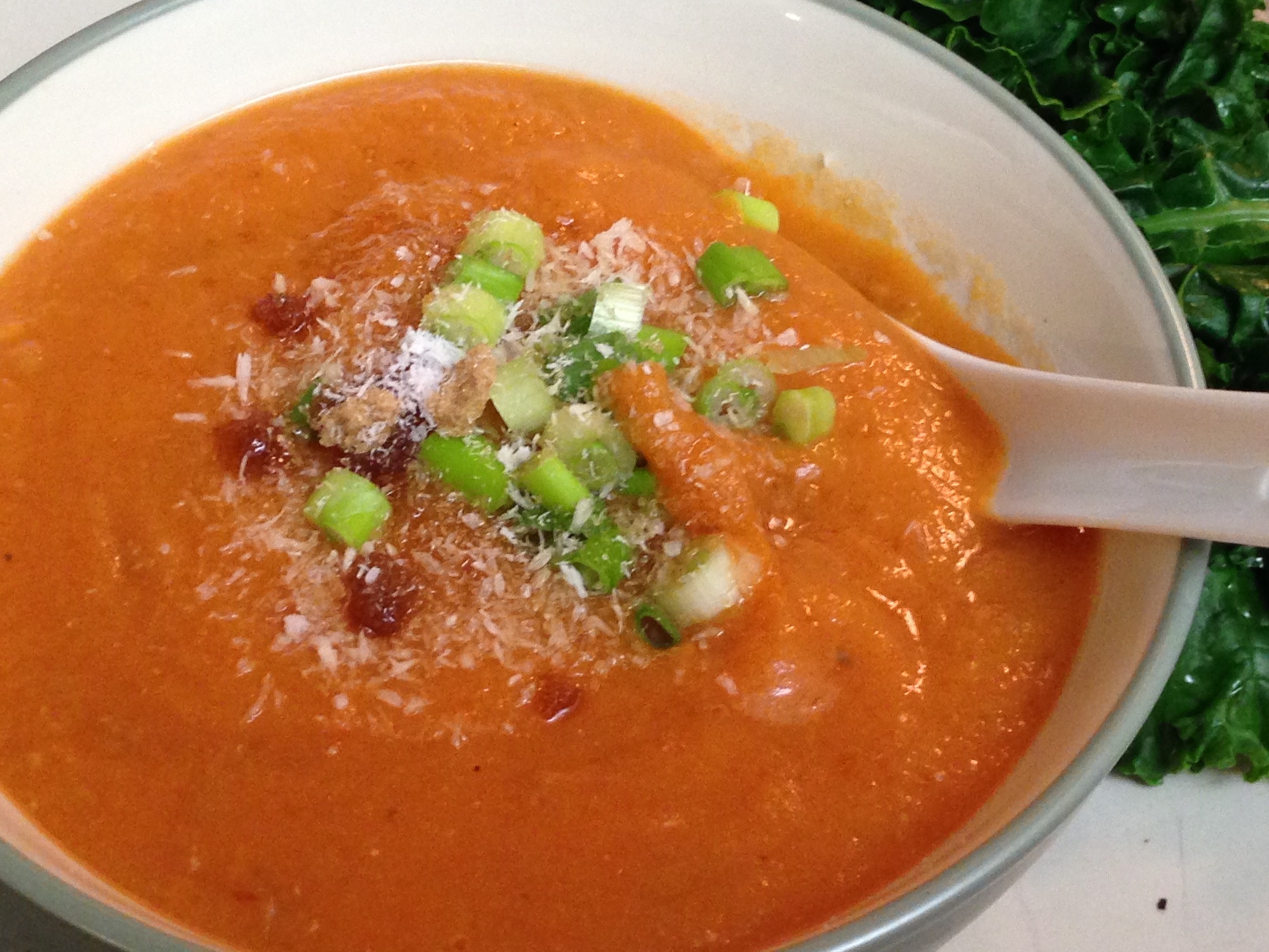 A bowl of vibrant orange, carotenoid-rich Carrot Soup A bowl of vibrant orange, carotenoid-rich Carrot Soup |
Eating Intuitively & The Principles of Balance ~ Sugar, Oil, Gluten, Salt & FIBER
While many following a whole foods, plant-based diet avoid all sugar, oil and salt, and/or gluten, wheat, and all 'the whites' our vegetarian plant-based diet is less restrictive. As is often said, "don't let the perfect be the enemy of the good!"
A few foods we consume that many now commonly believe to be unhealthful include soy foods and plant proteins containing gluten, called seitan, along with some sweeteners and oils.
Both soy and gluten are excellent sources of protein that can be part of a healthy vegetarian plant-based diet for the majority of the population that does not have a soy allergy or celiac disease. Soy foods in particular have cancer preventative properties, especially prostate and breast cancers.
Another reason Don and I regularly consume soy foods, and other foods some may considered 'bad' or too refined is because we had to adjust our diet to help us more successfully thrive on a vegetarian plant-based or vegan diet.
As I will be discussing in future posts, both Ayurvedic medicine and Chinese Five-Element Theory classifies people according to predominant constitutional make-up, or patterns of imbalance. In Ayurvedic medicine, there are three main humors referred to as doshas which encompasses the five elements. When correcting diseases and imbalances, foods which pacify the imbalance would be highlighted, while foods which exacerbate the imbalance would be minimized or avoided.
As an example, Don and I needed to make adjustments to our diet as we realized that most of our daily food selections were exacerbating our Vata imbalances, especially with respect to our digestive functioning, and Don's psoriasis. Those with a predominant Vata dosha, or a related Vata health issue need to eat a Vata pacifying diet, which emphasizes sweet, warming, cooked foods, liquids and spices which warms the body, soothes the nerves, builds vitality, and moistens dryness. Vata types need more cooked, sweet, oily, salty foods than the other doshas.
Beans, bitter dark leafy greens and cruciferous vegetables, cranberries, raw versus cooked apples, cold and frozen foods like iced drinks or ice cream, and oil, sugar and salt-free meals can worsen Vata imbalances. Contrarily, other dosha types may do well with more raw, cooling foods, and minimal sugar, oils and salt.
Since healthy digestion and assimilation is foundational to the healthy functioning of all other organ systems, it is critical to consume foos which support their proper functioning. This will vary according to one's primary dosha.
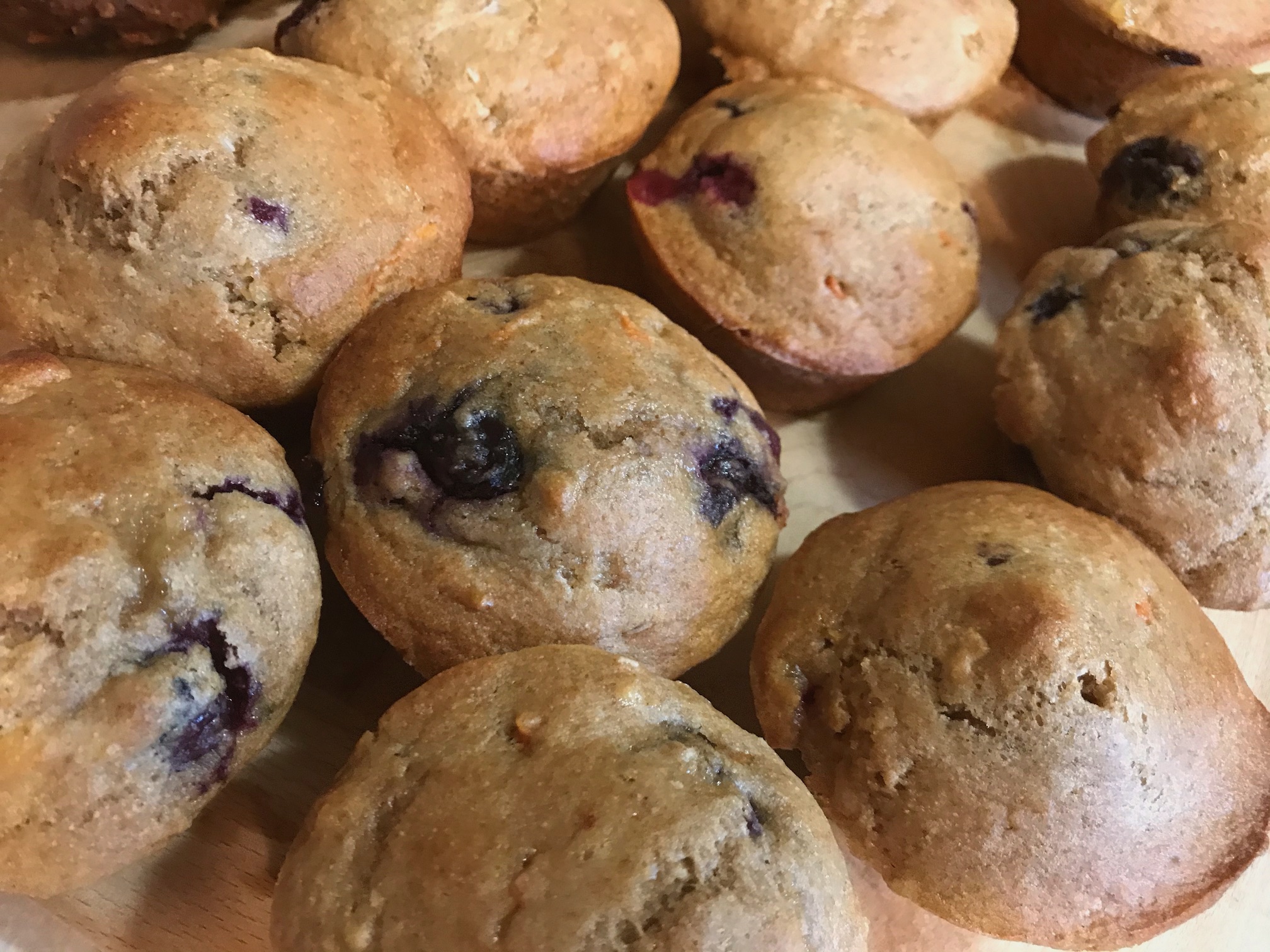 Lemon Blueberry Muffins made with sprouted wheat flour
Lemon Blueberry Muffins made with sprouted wheat flour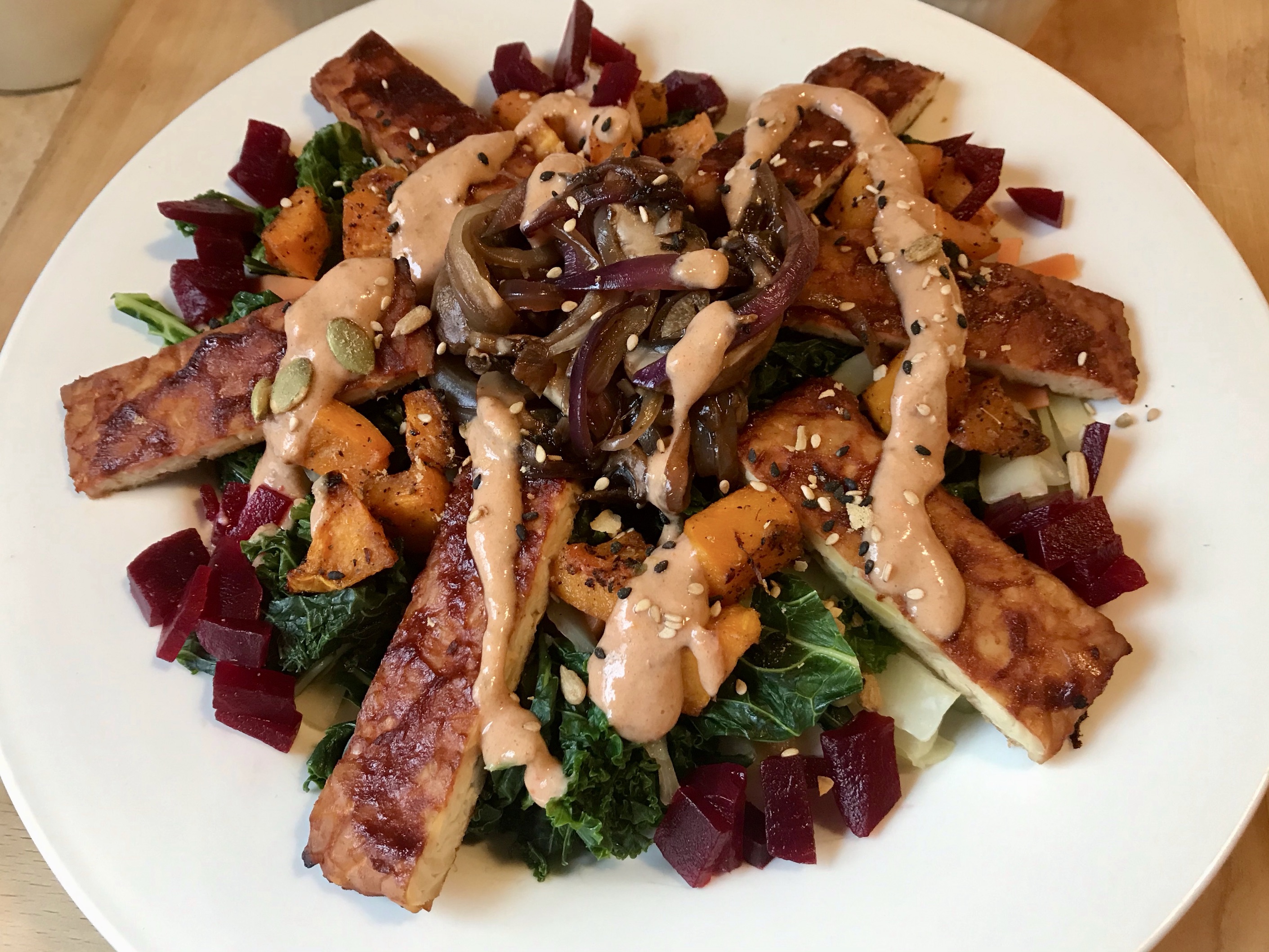 Tempeh over Kale w/ a Creamy Chipotle Dressing ~ a project from my FOK online cooking course
Tempeh over Kale w/ a Creamy Chipotle Dressing ~ a project from my FOK online cooking course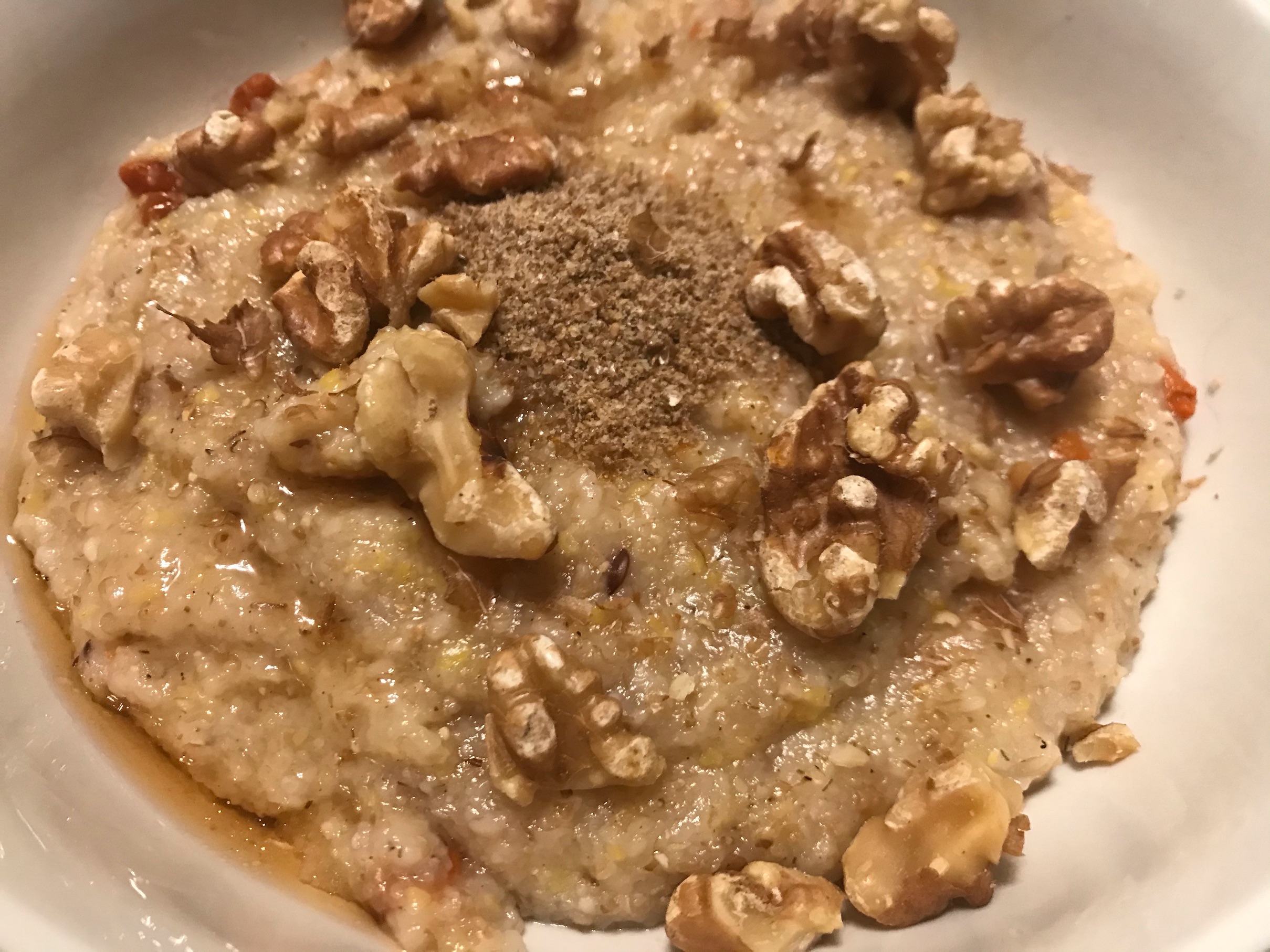 Hot Cereal topped with Walnuts, ground flax seeds, and a little high lignan flax oil + brown sugar ~ a great start for a Vata type!
Hot Cereal topped with Walnuts, ground flax seeds, and a little high lignan flax oil + brown sugar ~ a great start for a Vata type!Even flour products (versus whole cooked grains) can have their place in a healthy balanced vegetarian plant-based diet. Humans have been refining (or fermenting) grain into a variety of bread products for thousands of years. Many Asian cultures consume large quantities of white rice. These foods are easier to digest, and therefore easier on the gut.
The gut microbiome is populated with microbes that specialize in digestion of specific foods. It can take some time for these gut microbes to repopulate, hence, it is recommended to add certain higher fiber foods, or foods high in oligosaccharides slowly, over the course of several meals.
As an example, when initially transitioning to a pure vegetarian plant-based diet, the somewhat more refined grains, such as cous cous, bulgur or cracked wheat, pasta noodles, or sprouted or sourdough breads are generally much more enjoyable, and easier to digest than the very chewy whole wheat berries, which are best used sparingly, such as in added to a salad.
Another option for those new to a vegetarian plant-based diet who may have weak digestion is to consume more cooked versus raw vegetables, and to peel the more fibrous peels of fruits and vegetables to minimize excess fiber intake on a vegetarian plant-based diet.
If transitioning from meat-centered diets typically very low in fiber, it is usually recommended to add higher fiber foods incrementally into the diet, or balance higher fiber foods with the more refined foods, such as white versus brown rice with beans.
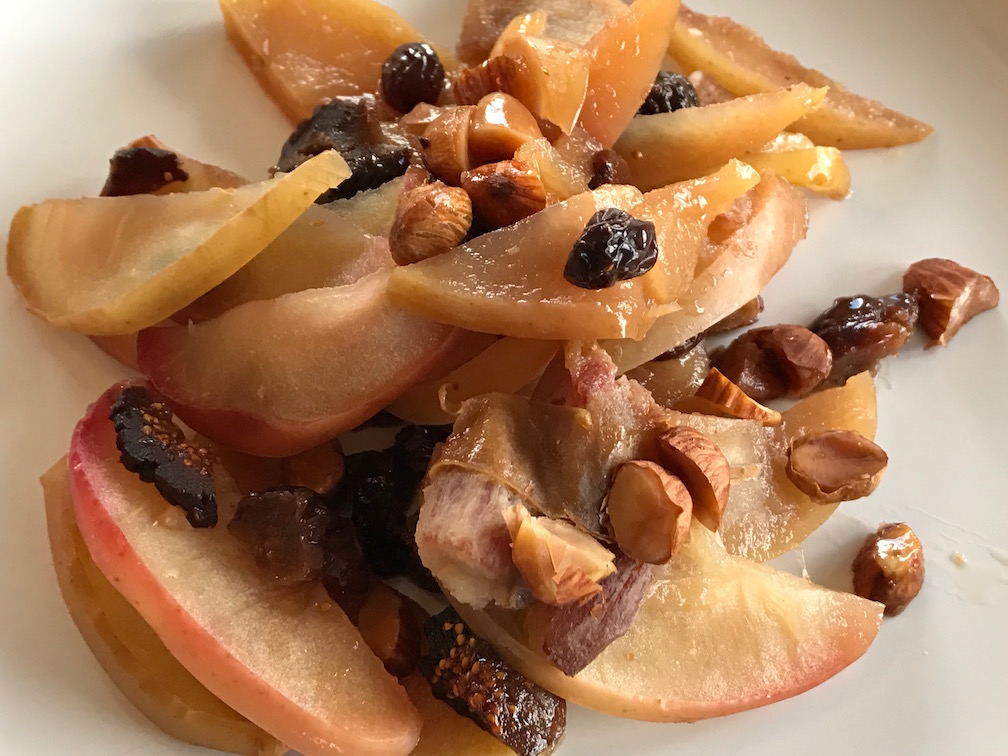 Baked Fresh & Dried Fruit & Nut Medley Baked Fresh & Dried Fruit & Nut Medley |
Generally speaking, we recommend learning how to eat a vegetarian plant-based diet more intuitively, according to the principles of balance as taught in Chinese medicine, and Chinese Five Elements Theory and Ayurvedic medicine, and the correct application of a macrobiotic diet (which sadly has been taught by those without a proper background in Chinese medicine, from which the principles of balance, and yin and yang are derived.)
Learning how to eat more intuitively requires understanding some basic principles, such as eating in harmony with the seasons, and to restore homeostasis when you feel out of balance. You can read about the best foods to eat during the Spring season, here.
Primarily, our vegetarian plant-based diet is primarily designed to be a simple way of eating that is both enjoyable, and easily sustained, with plenty of wiggle room to enjoy life's celebrations. Customized recommendations can be made during private Holistic Health Coaching Sessions.
Feel free to Contact Me with questions, or to schedule a by phone consultation.
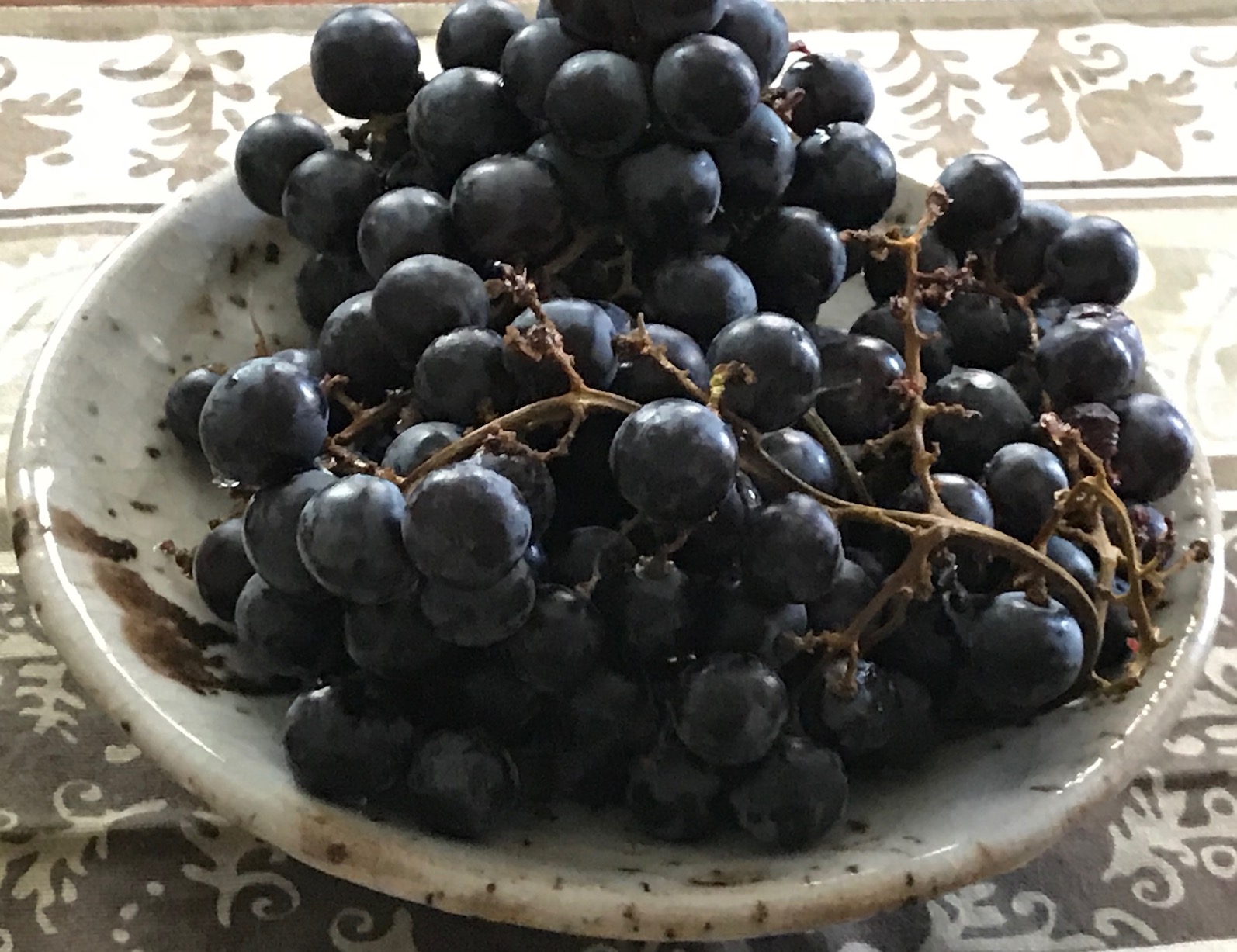 L-Phytonutrient-rich deep purple grapes; R-Bannock Cookies, Carob Brownies, & Lemon Coconut Sesame Cookies ~ all made w/ Okara (pulp from making soy milk) & dried fruit L-Phytonutrient-rich deep purple grapes; R-Bannock Cookies, Carob Brownies, & Lemon Coconut Sesame Cookies ~ all made w/ Okara (pulp from making soy milk) & dried fruit |
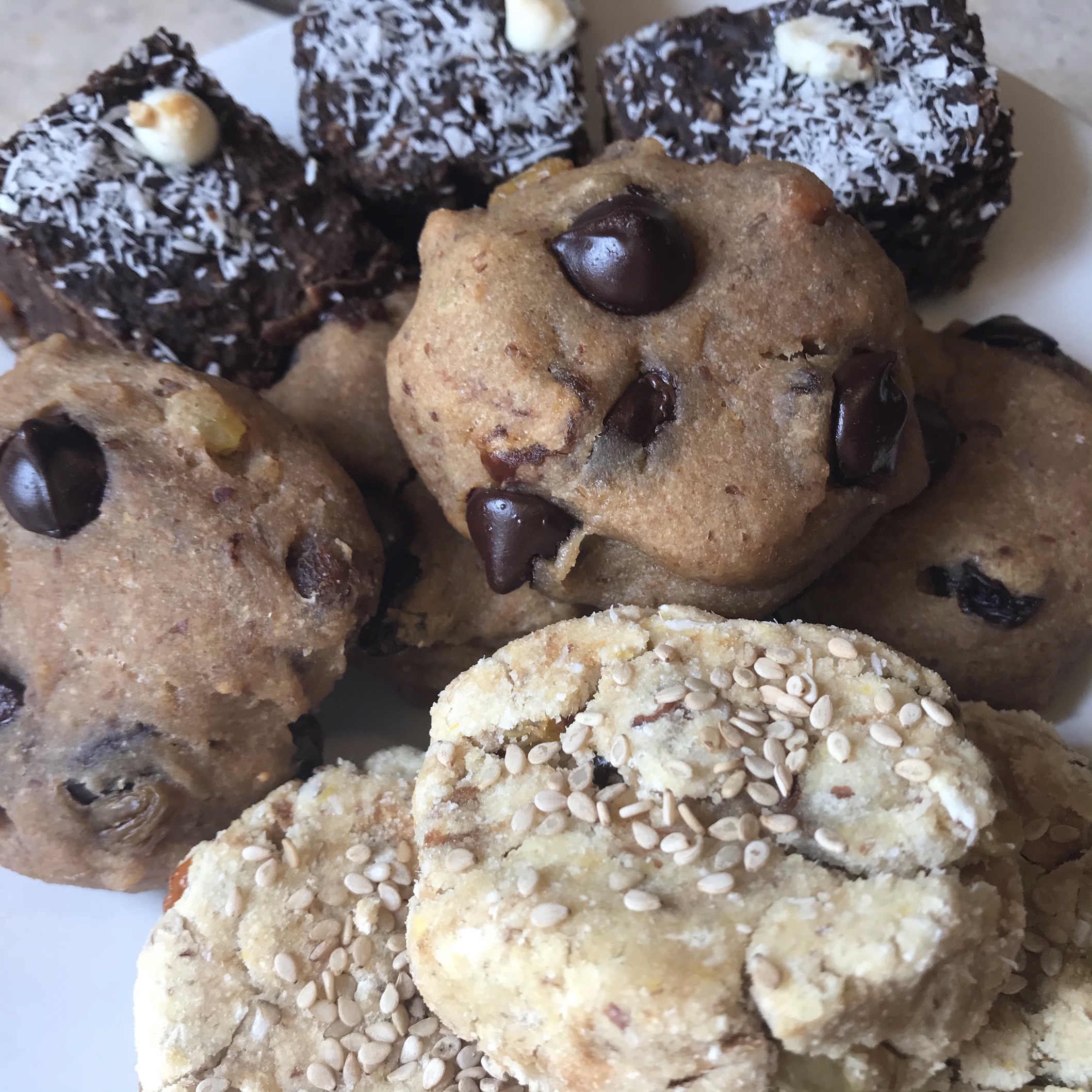 |
Are any animal foods included in a vegetarian diet?
While vegetarian diets may include dairy (Lacto Vegetarians), eggs (Ovo Vegetarians) or both (Lacto-Ovo Vege-tarians), and/or fish (Pescatarians), and similarly, macrobiotic diets may include mild white fish ~ or possibly small amounts of other animal foods ~ each of those foods have potentially negative consequences, depending upon where and how they are sourced. Additionally, there are both ethical and environmental factors involved that make these foods less desirable than they may have been many years back.
We have been abstaining from all animal foods with the exception being small amounts of local raw honey, and plan to do our best pending unforeseen circumstances to maintain an otherwise purely vegetarian plant-based diet. Whether or not you decide to supplement with any animal foods is a personal choice, however, for the best health outcomes, we recommend limiting total animal food consumption to 10% of total calories.
We personally decided to stop consuming dairy in 2022 after visiting a local dairy which produced the milk and half and half we had been consuming. We instinctively both concluded silently in our own hearts, after which we shared our conclusions to give up all dairy foods after seeing the calves trying to suckle each other from their separate holding pens, which I discuss in this video, and which can be found in this blog post.
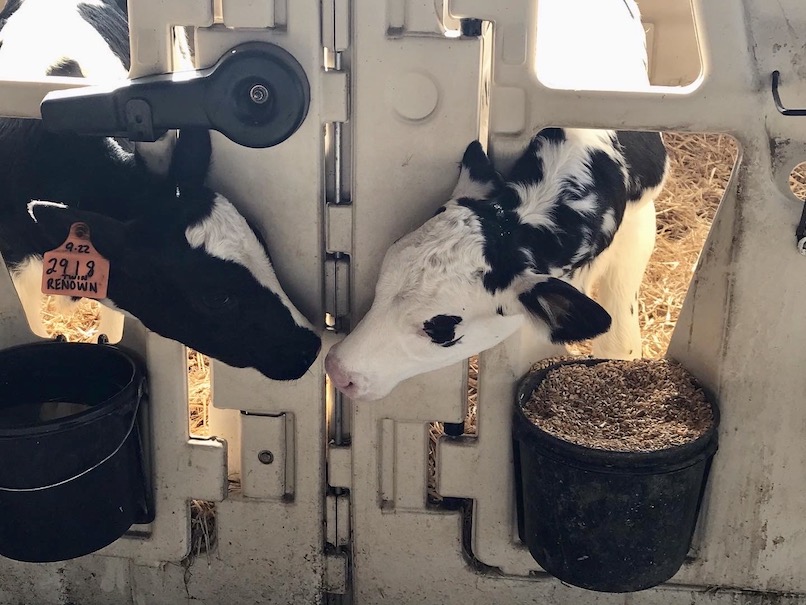
More Plant-Based Meal Prep Tips + Recipes
Learn more about Macrobiotics and Chinese 5-Elements
